
Redwinged Blackbird eggs Nest of a Redwinged Blackbird… Flickr
One of the most abundant birds across North America, and one of the most boldly colored, the Red-winged Blackbird is a familiar sight atop cattails, along soggy roadsides, and on telephone wires. Glossy-black males have scarlet-and-yellow shoulder patches they can puff up or hide depending on how confident they feel. Females are a subdued, streaky brown, almost like a large, dark sparrow.
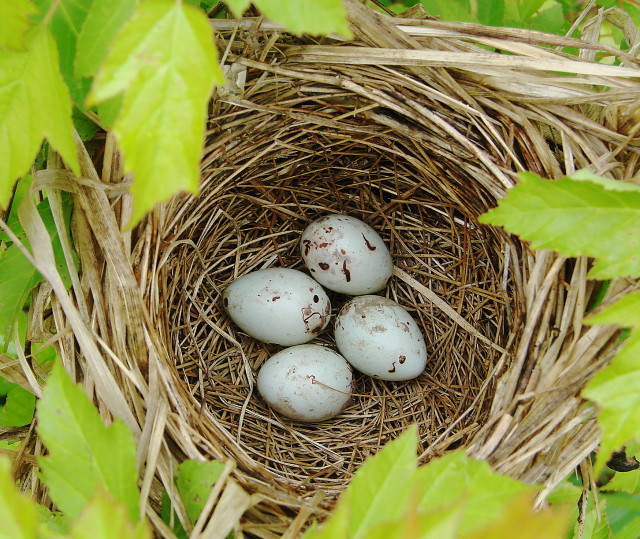
Red Winged Blackbird nest and eggs Flickr Photo Sharing!
One of the most abundant birds across North America, and one of the most boldly colored, the Red-winged Blackbird is a familiar sight atop cattails, along soggy roadsides, and on telephone wires. Glossy-black males have scarlet-and-yellow shoulder patches they can puff up or hide depending on how confident they feel.
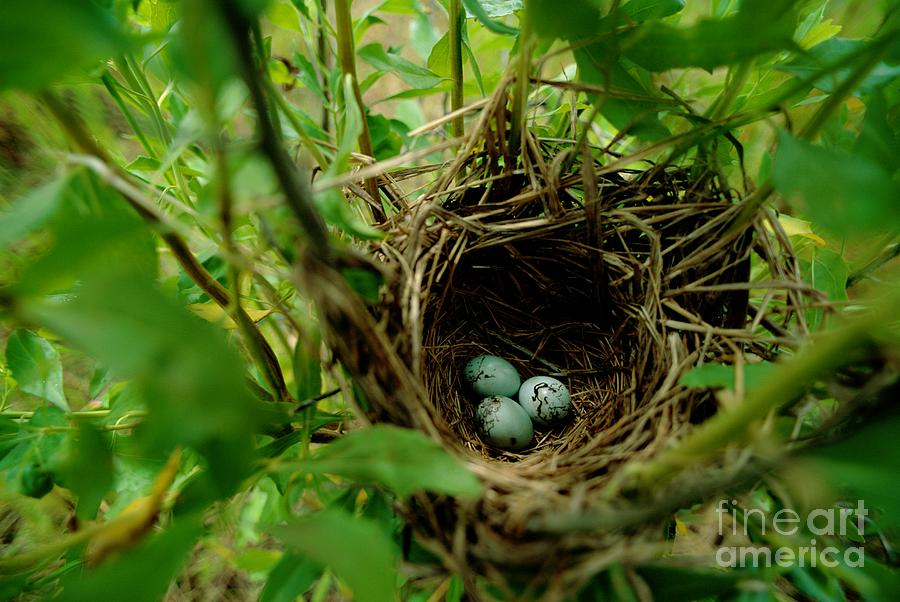
The Nest And Eggs Of A Red Winged Blackbird, Agelaius Phoeniceus
Facts Food Preferences Nesting Nesting Habits of the Red-Winged Blackbird The Red-Winged Blackbird will nest in large colonies, often numbering in the thousands. Male Red-Winged Blackbirds often have up to 15 females in its territory, although most have up to 5.
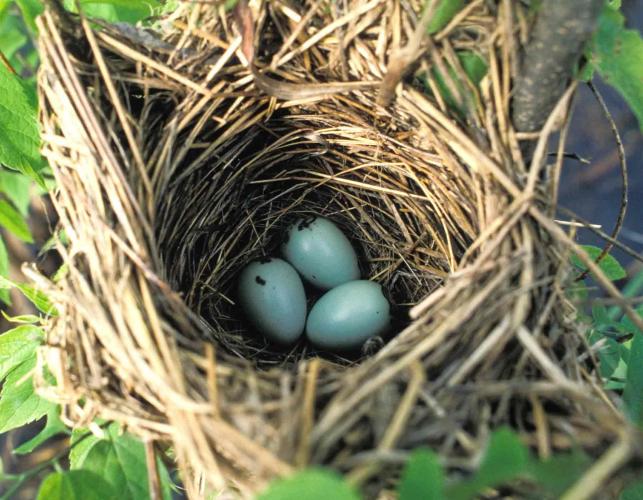
RedWinged Blackbird Missouri Department of Conservation
General Description Red-winged Blackbirds display marked sexual dimorphism. Males in breeding plumage are very familiar birds to many people. They are solid black, with red wing-patches. Each patch has a light yellow stripe below, and can be displayed in varying amounts.
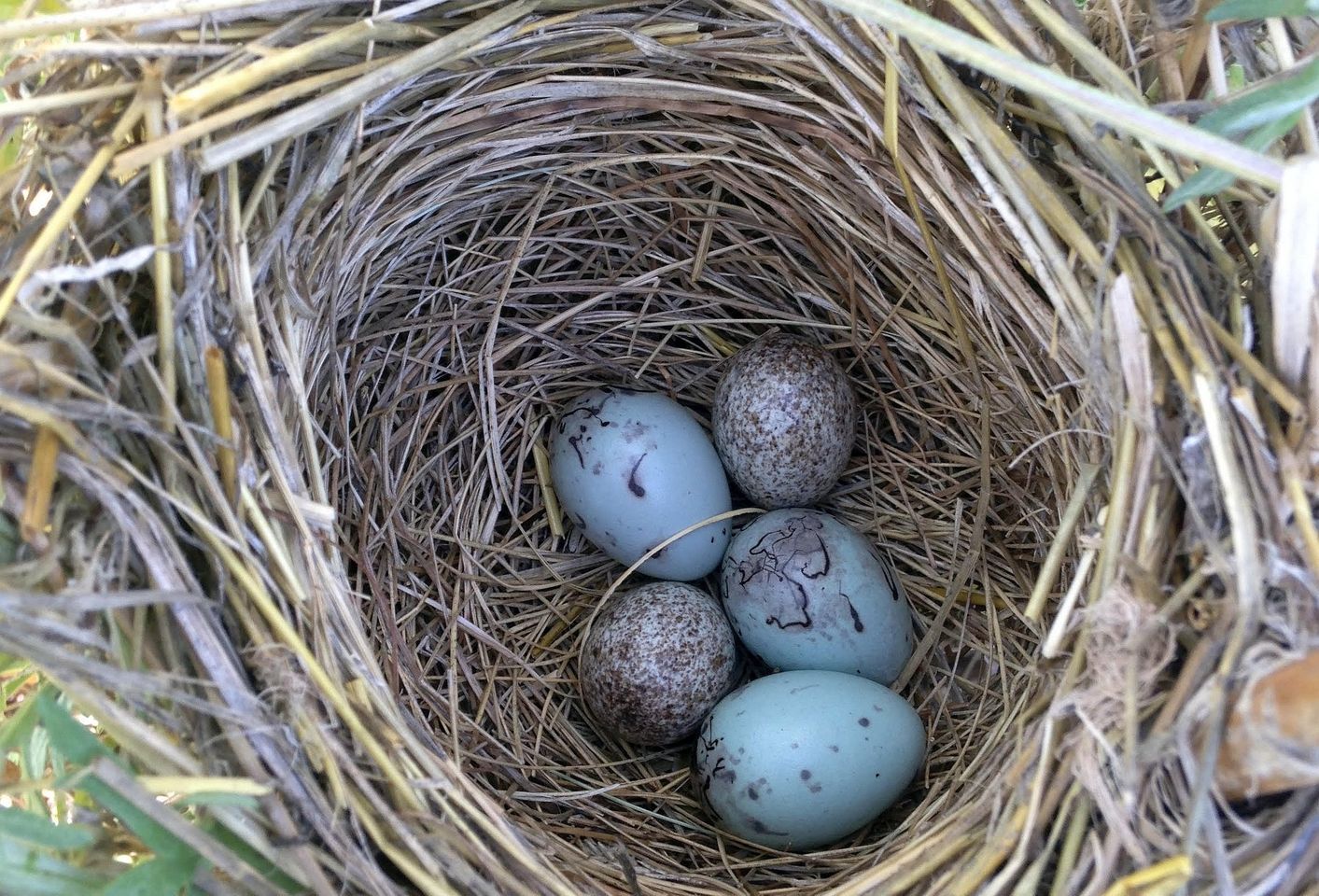
The Beautiful Redwinged Blackbirds Read This Now
A red-winged blackbird photographed at Tracy Aviary in Salt Lake City, Utah.. the red-winged's count was estimated at 190 million in the mid-1970s. Populations are stable.

Red Winged Blackbird Egg Nice when Viewed On Black On a wa… Flickr
The Red-winged Blackbird is a highly polygynous species, meaning males have many female mates - up to 15 in some cases. Typically 5 or more females have to crowd their nests into any one male's territory. Second broods are rare for this species, but they can occur if time permits. Hatching is asynchronous and usually takes place just after.
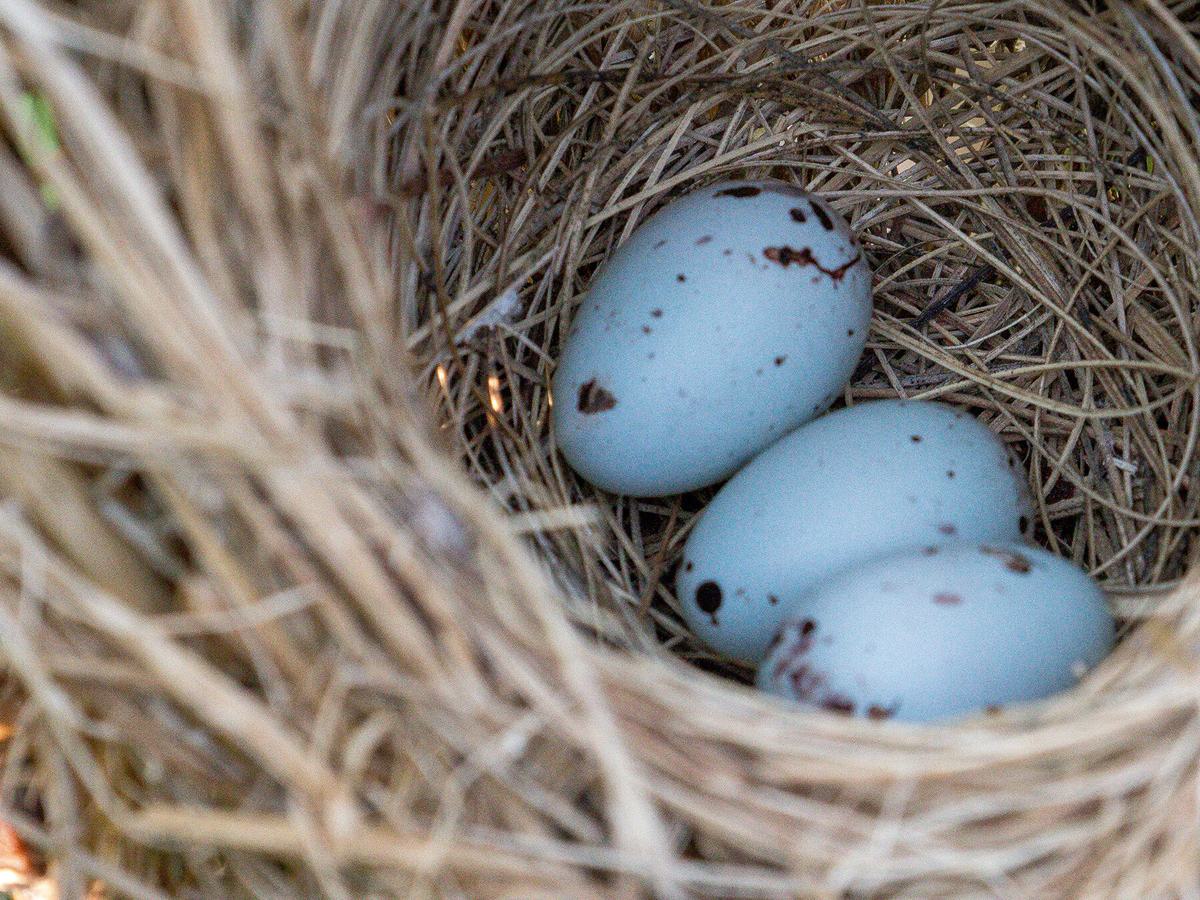
Redwinged Blackbird Nesting (All You Need To Know) Birdfact
Males are black with red shoulder patch that is sometimes concealed. Males have rusty feather edges in the winter. Females are streaked brown and often confused with sparrows. Look for long, sharply pointed bill. Often in flocks, especially in winter. Visits feeders. Breeds in marshes and scrubby, wet fields. Distinctive song, especially as migrants arrive in early spring.

Redwing Blackbird Eggs 37728 Stock Photo Image of icteridae
Home Birding Get Ready for Red-Winged Blackbird Season Monica Cardoza Updated: Nov. 02, 2023 Get facts about the red-winged blackbird, a black bird with red and yellow wings that returns to backyards in spring. Learn about their call, eggs and more. Enrique Aguirre Aves/Getty Images A male red-winged blackbird perches on cattails

Pin on Interesting Nature Finds
Red-winged blackbirds are found in cattail, tule, sedge, and salt marshes as well as in wetlands. They are also found in wet shrubby fields, at the edge of secondary growth, hayfields, old fields, pastures, and even urban parks. During the winter, red-winged blackbirds are found in open fields and croplands.

Red Winged Blackbird Eggs Red Winged Blackbird Eggs Flickr
Female blackbirds have up to 3 broods per breeding season, but 1-2 broods are more typical. Because of their short breeding season, red-winged blackbirds tend to have 1-2 broods a season. The female lays 3-4 eggs, and incubation last 3-11 days. The hatchlings remain in the nest for 10-14 days, being fed by both parents.
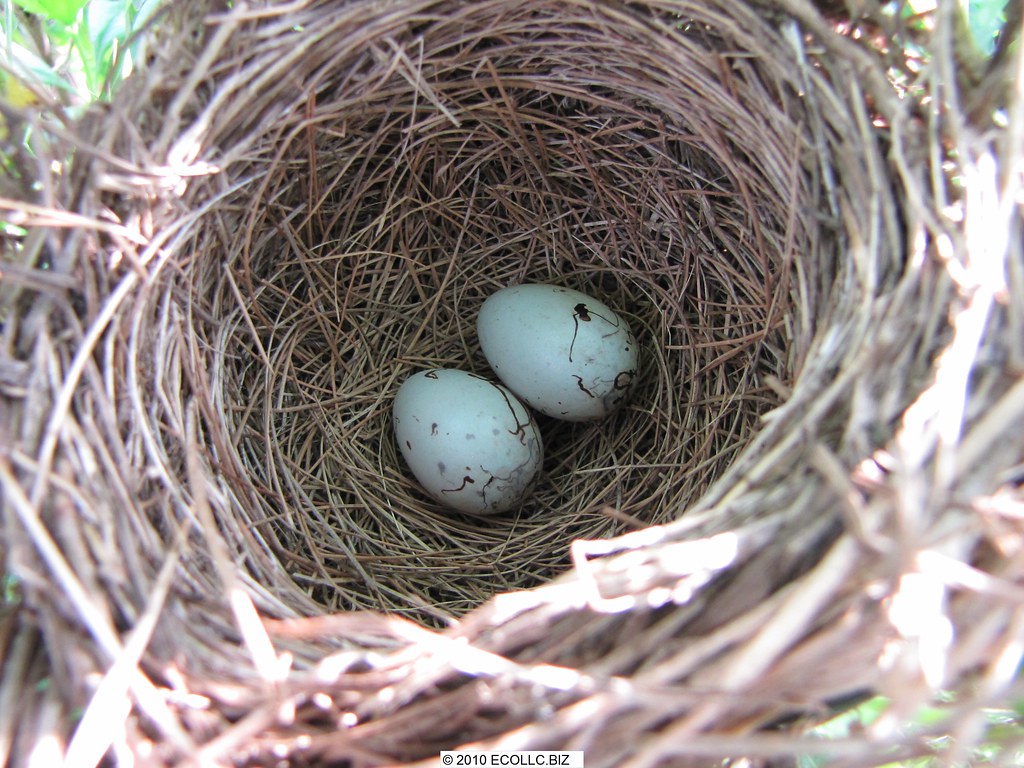
Redwinged blackbird nest & eggs BU Bob Upcavage Flickr
Red-Winged Blackbird Eggs By Ecosystems Mission Area July 31, 2008 Original Detailed Description Researchers investigate in the thicket of Williams Prairie, a state preserve site in Eastern Iowa, conducting bird surveys and find a nest of red-winged blackbirds. Sources/Usage Public Domain. Photographer No name provided

Redwinged blackbird (Agelaius phoeniceus) nest containing four eggs
Eggs 3-4, rarely 2-6. Pale blue-green, with markings of black, brown, purple concentrated at larger end. Incubation is by female only, 10-12 days. Young: Both parents feed nestlings (but female does more). Young leave nest about 11-14 days after hatching. Young Both parents feed nestlings (but female does more).

Red winged blackbird eggs, Life of a Pollinator Bird egg
19m ·. The nest and eggs of a red winged blackbird (Agelaius phoeniceus) nestled in the Atchafalaya Delta, Louisiana. 311.
a single feather redwinged blackbird
What can I do?
One of the most abundant birds across North America, and one of the most boldly colored, the Red-winged Blackbird is a familiar sight atop cattails, along soggy roadsides, and on telephone wires. Glossy-black males have scarlet-and-yellow shoulder patches they can puff up or hide depending on how confident they feel.

Redwinged blackbird eggs stock image. Image of feathers 106994171
Still one of North America's most abundant birds, the Red-winged Blackbird is nonetheless a concern for conservationists. Outside breeding season, Red-winged Blackbirds and other blackbirds are frequently targeted at their large roosts in agricultural areas, where the birds can cause significant crop damage. (The Bobolink is persecuted on its.
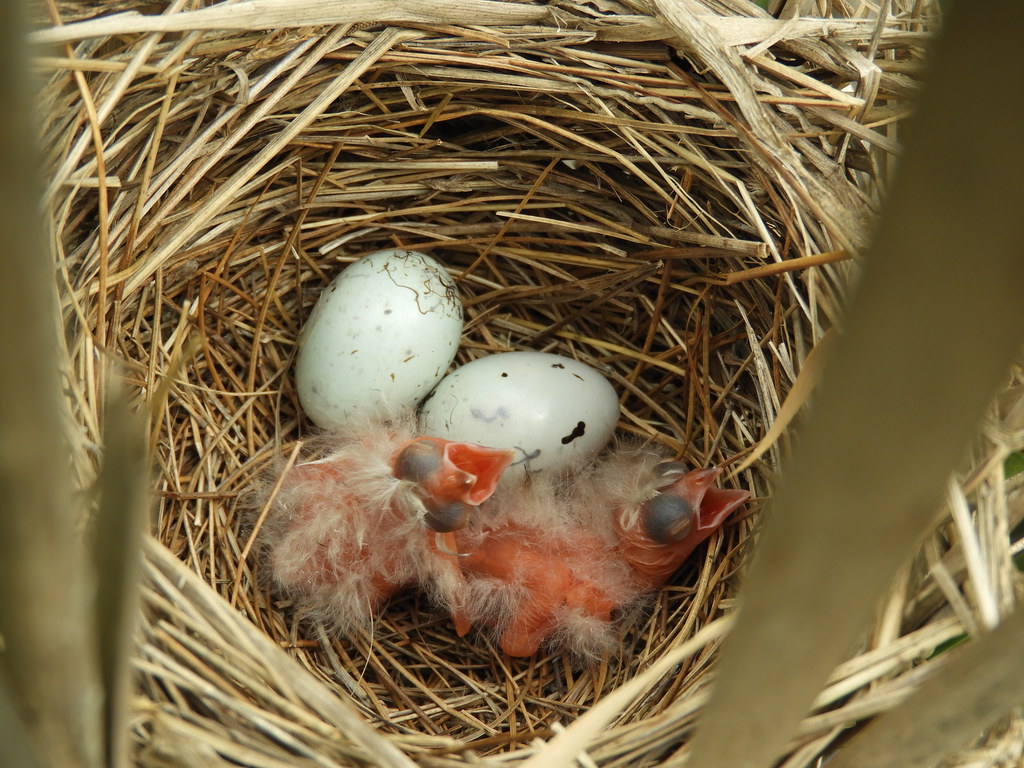
Maryland Biodiversity Project Redwinged Blackbird (Agelaius phoeniceus)
Red-winged blackbirds roost and breed in a variety of habitats, but tend to prefer wetlands. They have been known to live in fresh and saltwater marshes. On drier ground, red-winged blackbirds gravitate towards open fields (often in agricultural areas) and lightly wooded deciduous forests.